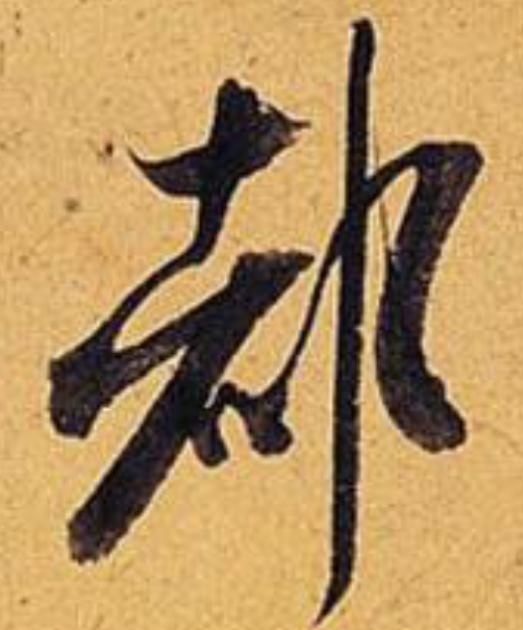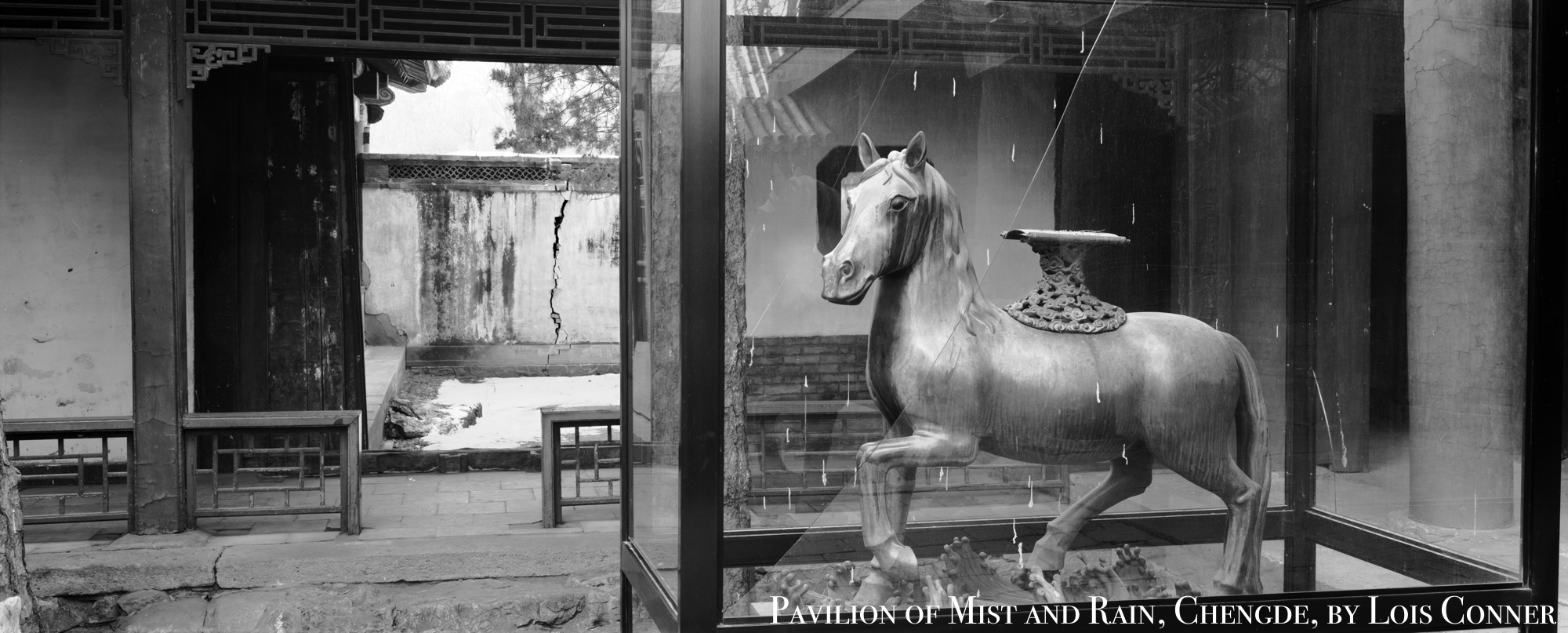Contra Trump
On 1 January 2024, China Heritage published Nutbush City Limits — 2024, Mao, Trump and China Heritage to mark this momentous year in US and global politics. It featured a reprint of A Monkey King’s Journey to the East, the meditation on Donald J. Trump and Mao Zedong with which we launched China Heritage on 1 January 2017. We also returned to the themes of Spectres & Souls, China Heritage Annual 2021, the subtitle of which was ‘Vignettes, moments and meditations on China and America, 1861-2021’.
A recurring topic in our work is that of the right to know and the need to lampoon. On Halloween, we join Randy Rainbow, one of America’s most artful political satirists, to mark the crescendo of the 2024 presidential election in the United States. Taking as his theme Xanadu, Olivia Newton-John’s 1980 hit song, Randy warns that MAGADU — a country ruled over by MAGA, Make-America-Great-Again Republicans — would be ‘a place where nobody wants to go’.
***
China Heritage first featured Randy Rainbow’s work with Gurl, You’re a Karen, a parody based on the song Dentist sung by Steve Martin in the horror-comedy musical film Little Shop of Horrors. Included in Who Goes Nazi Now? — an appendix to the series Xi Jinping’s Empire of Tedium published in April 2022 — Gurl, You’re a Karen took aim at Marjorie Taylor Greene (MTG) and Lauren Boebert, two radical gun-totin’ right wingers in the US Congress.
***
The film Xanadu was released in August 1980. An artless attempt to cash in on the popularity of the Australian singer, song-writer and actress Olivia Newton-John, who had starred with John Travolta in the 1978 hit Grease, the fantasy flick Xanadu was utter drivel. From my teenage years, although I had readily walked out of bad movies, Xanadu was so transfixingly bad that I ended up staying until the roller-blading finale which was led by Gene Kelly. It was, however, the first time that I went to the box-office at the cinema in Civic in Canberra to ask for my money back. In doing so I deeply embarrassed Matt Dillon, a fellow student in the intensive Japanese course at The Australian National University with whom I had gone to see the movie. Years later, we would joke about the movie, my over-reaction and his red-faced response. Matt passed away suddenly a few years ago and, since I’m pretty sure that he’d have enjoyed Randy Rainbow’s unabashed flamboyance and incisive panache, I lovingly dedicate this celebration of camp art and political mayhem to his memory.
— Geremie R. Barmé
Editor, China Heritage
31 October 2024
Halloween
***
See also:
***
Ten percent of any population is cruel, no matter what, and 10 percent is merciful, no matter what, and the remaining 80 percent can be moved in either direction.
— Susan Sontag
You think your pain and your heartbreak are unprecedented in the history of the world, but then you read.
— James Baldwin
from Other People’s Thoughts, XVIII
20 November 2020
***
Related Material:
- Leonard Cohen, Democracy & The Future — 3 November 2020, 3 November 2020
- John Lithgow, A Trumpty Dumpty Denouement, 6 November 2020
- Jianying Zha & Katō Yoshikazu, Adieu, China! — Jianying Zha’s Long Farewell, 10 November 2020
- Lil Nas X, Ho-Ho Holiday — Lil Nas X & New Sinology, 24 December 2020
- Shades of Mao 9 September 2023
- Xi at XI — More Mao Than Ever, 23 December 2023
- Ken Burns, Kinship of the Soul, 30 May 2024
MAGADU
‘How the hell is this race so close!’, Randy Rainbow says to a nodding Donald J. Trump in the lead-in to MAGADU, a musical spoof released on YouTube in the final week of the US 2024 election cycle. ‘I can’t sleep at night’, exclaims Randy:
I keep imagining the dark, hate-filled, Orwellian, deep-fried, comb-over, fever-dream hellscape this country will become if your crazy ass wins (nothing personal).
It’s almost enough for me to break into one of my internationally renowned, award-winning song parodies:
***
Randy Rainbow tells us that if he is successful in the 2024 presidential election Donald Trump would create:
A place where nobody wants to go
A country so lame and low they call it MAGADU
It’s lame AF and takes you back in time
But, if you vote for this bag a’dicks,
As soon as November six
You’ll be in MAGADU
Where lies are facts and nothing’s true …
MAGADU is a parody of Xanadu, the theme song of a 1980 film sung by Olivia Newton-John. The title of the film and of Newton-John’s song was a reference to a fantasy nightclub that was named after the city in Kubla Khan, a poem written by Samuel Taylor Coleridge in 1797. The name ‘Xanadu’ was a reference to Shangdu 上都/Шанду, the summer capital of the Mongol-Yuan dynasty before the reign of Kublai Khan which had acquired something of a legendary status in the West. When my high-school English class was instructed to recite Coleridge’s poem in the late 1960s, our teacher made a point of telling us that Coleridge was inspired by an admix of orientalist fantasies and opium. The first lines of Kubla Khan read:
In Xanadu did Kubla Khan
A stately pleasure-dome decree:
Where Alph, the sacred river, ran
Through caverns measureless to man
Down to a sunless sea.
So twice five miles of fertile ground
With walls and towers were girdled round;
And there were gardens bright with sinuous rills,
Where blossomed many an incense-bearing tree;
And here were forests ancient as the hills,
Enfolding sunny spots of greenery.
The opening lines of Newton-John’s ethereal song, written over 150 years later, said that Xanadu was:
A place where nobody dared to go
The love that we came to know
They call it Xanadu (it takes your breath and it’ll leave you blind)
And now, open your eyes and see
What we have made is real
We are in Xanadu (you dream of it, we offer you)
***
Randy Rainbow’s MAGADU, however, is ‘a dark dystopia of absurd extremes to kill your dreams’ and in his parody he urges his audience to reject a second Trump presidency and all that it portended:
Let’s not go there, to MAGADU
There’s no clean air in MAGADU …
a tacky Mar-a-Lago-ish fantasy that smells like pee.
***
More Randy Rainbow
China Heritage first became aware of Randy Rainbow’s talent for political satire during the 2016 Republican Party presidential primaries when he lampooned such drop-in-the-pan wannabes as Carly Fiorina, Jeb Bush, Ben Carson, Marco Rubio, Ted Cruz and John Kasich. It was Donald Trump, the successful GOP presidential nominee, however, who proved to be the ‘gift’ that has kept on giving. In Ya Got Trump Trouble!, Rainbow both skewered Trump during his presidential run and saw the gloom that lay ahead.
Randy went on to create a series of ‘instant classics’ during Trump’s presidential term, including:
- You’re Making Things Up Again, Donald
- Putin and the Ritz
- Covefefe: The Broadway Medley
- Yes! We Have No Steve Bannon
- Desperate Cheeto
- Stand by Your Man (Donald)
- Rudy and The Beast
- A Very Stable Genius
- The Donald Trump Cell Block Tango
- A Spoonful of Clorox
Following Trump’s obdurately unacknowledged loss in the 2020 election, Rainbow released a raft of new songs, such as:
- Don’t Tell Donald He’s NOT RE-ELECTED TODAY
- Rudolf the Leaky Lawyer, and, of course:
- Sedition!
***
***
Shall we expect some transatlantic military giant, to step the Ocean, and crush us at a blow? Never!—All the armies of Europe, Asia and Africa combined, with all the treasure of the earth (our own excepted) in their military chest; with a Buonaparte for a commander, could not by force, take a drink from the Ohio, or make a track on the Blue Ridge, in a trial of a thousand years.
At what point then is the approach of danger to be expected? I answer, if it ever reach us, it must spring up amongst us. It cannot come from abroad. If destruction be our lot, we must ourselves be its author and finisher. As a nation of freemen, we must live through all time, or die by suicide.
— Abraham Lincoln, Speech to the Young Men’s Lyceum of Springfield, 1838
***
The Lincoln-Douglas debates came to be regarded as a preëminent example of American political discourse in the nineteenth century—a fierce clash of ideas, sustained by the close attention of the public.
But they also came to represent a darker lesson: for all their eloquence, they could not avert the Civil War, or protect Lincoln from assassination. American political culture was bounded by a contest between reason and violence—a seesawing battle that continues to this day, between the aspiration to persuade fellow-citizens to accept your views and the raw instinct to force them to comply.
— Evan Osnos, 16 November 2020
***
To be hopeful in bad times is not just foolishly romantic. It is based on the fact that human history is a history not only of cruelty, but also of compassion, sacrifice, courage, kindness.
What we choose to emphasize in this complex history will determine our lives. If we see only the worst, it destroys our capacity to do something. If we remember those times and places—and there are so many—where people have behaved magnificently, this gives us the energy to act, and at least the possibility of sending this spinning top of a world in a different direction.
And if we do act, in however small a way, we don’t have to wait for some grand utopian future. The future is an infinite succession of presents, and to live now as we think human beings should live, in defiance of all that is bad around us, is itself a marvelous victory.
— Howard Zinn, You Can’t Be Neutral on a Moving Train, 2002
***

***
All Hallows
Louise Glück
Even now this landscape is assembling.
The hills darken. The oxen
sleep in their blue yoke,
the fields having been
picked clean, the sheaves
bound evenly and piled at the roadside
among cinquefoil, as the toothed moon rises:This is the barrenness
of harvest or pestilence.
And the wife leaning out the window
with her hand extended, as in payment,
and the seeds
distinct, gold, calling
Come here
Come here, little oneAnd the soul creeps out of the tree.

